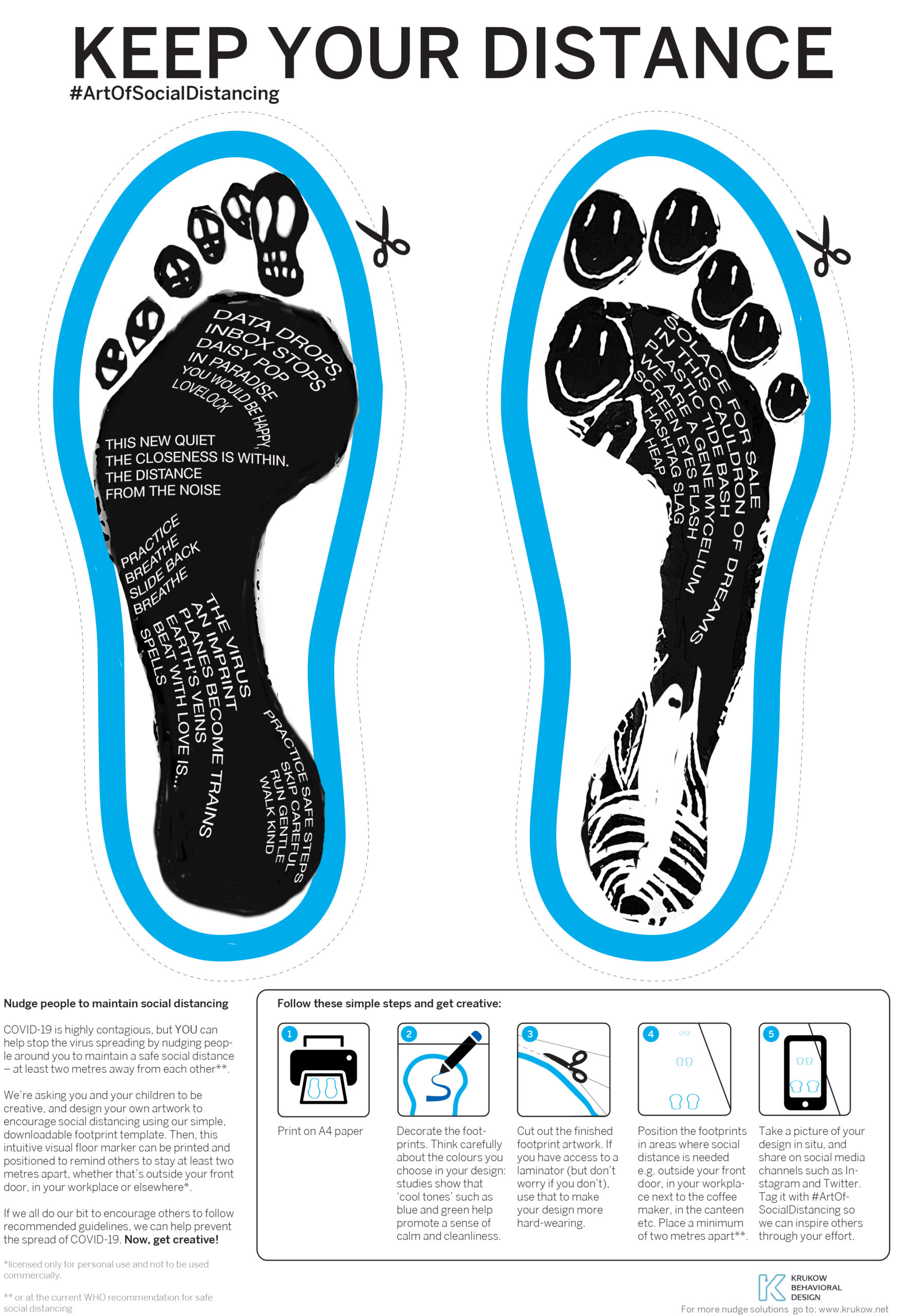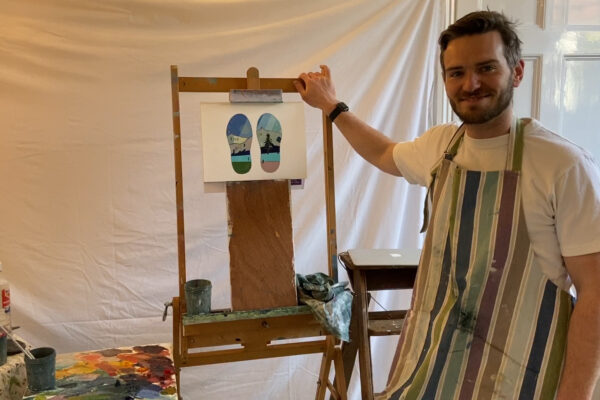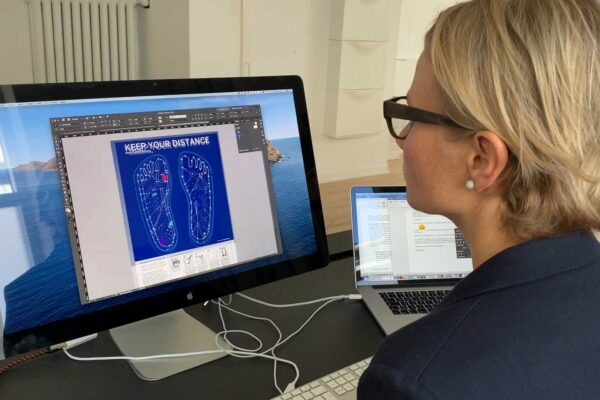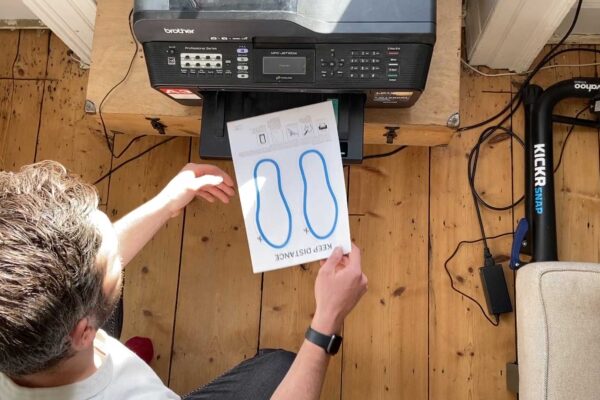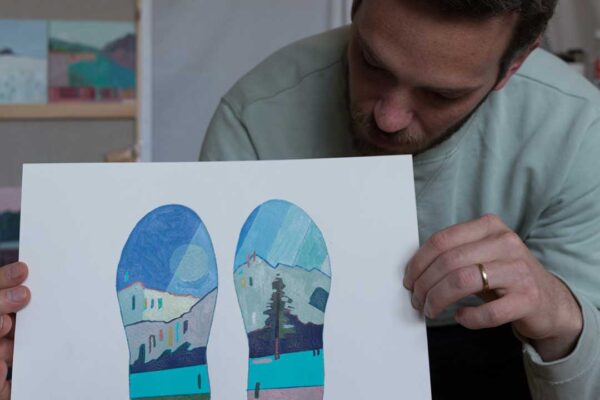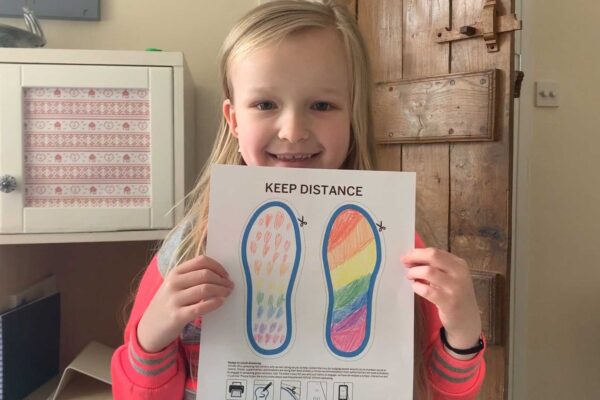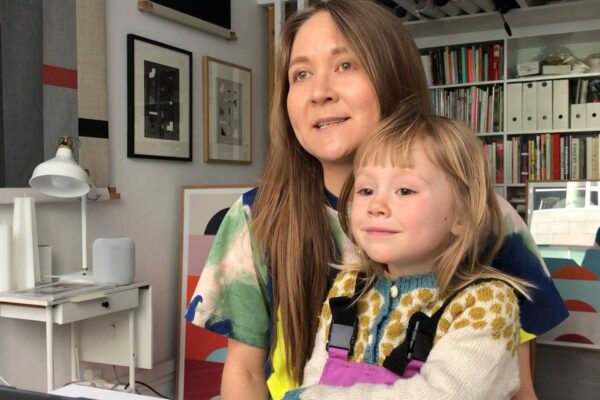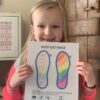Print and design your footprint
EVERYBODY gets nudged in the supermarket and not only in the unseemly rush for toilet roll in aisle 12. You get in the car and the seatbelt light comes on (nudge). The white arrows out of the car park (another nudge).
The government and big business have been nudging us for years. It’s actually a science and Sille Krukow, an internationally-acclaimed behavioural design expert from Copenhagen who has worked with clients such as Heineken and the United Nations, believes that it can help save lives during the coronavirus pandemic.
‘We know that we have to implement the government recommendations about social distancing to prevent the spread of Covid-19,’ explains Krukow. ‘The problem is that this goes against basic human instincts and 90% of our behaviour is controlled by a mode of thinking that happens sub-consciously based on our surroundings and how they influence us at the moment of choice.’ In other words, our pack mentality is telling us not to keep 2 metres apart but science is telling us that we must and when we have to make that decision we tend to do what comes naturally.
‘That is the challenge,’ she says. ‘Luckily for us, we are also able to translate information and knowledge into behaviour change and that is what makes us the superior species on the planet… we just need a “nudge”.’ Up to this point, the “nudge” has consisted of repeated government instructions via daily press conferences, emotive pleas from health professionals and reminders via traditional means such as online, TV and radio advertisements and, as of yesterday, banners within computer games on mobile phones.
‘It’s just not enough,’ warns Krukow. ‘During a pandemic like this even more of our behaviour is controlled by the go-to mode of thinking because all our mental energy goes into handling the crisis, worrying about our loved ones and so on, and that means we behave even more irrationally and are more likely to fail. Nudge and behavioural design are vital here because we make it easy and intuitive for people to comply with the recommendations from the authorities.
In practical terms, that means communicating directly at the point when contamination can occur (i.e. wherever people gather – the work place, hospitals, supermarkets etc) and communicating in the most effective way possible. To that end Krukow has today launched The Art of Social Distancing Us – a global initiative, using home-made illustrated footprints to encourage social distancing that has already inspired British painter Fred Coppin and Danish creative agency Hvass+Hannibal to do their bit to help fight the pandemic.
‘I used a randomizer to see different Google Street Views,’ says Copping. ‘One of the ones I clicked on was a mountainous region in northern Italy, which I thought was fairly fitting [given the Italians’ battle with COVID-19]. I thought it was an extra nod and a bit of support for that crew up there.’ Nan Na Hvass from Hvass&Hannibal, meanwhile, was attracted by the idea of wet paint’ to convey how ideas and concepts are shared by us leaving our trace – and that how we choose to act affects the world around us.’
‘The footprints play a crucial role,’ insists Krukow. ‘They illustrate a social norm because a footprint is a print from another person and so it relates to the pack mentality and we are also encouraging the use of blue as a colour because our experience shows that we can prime people to think about hygiene… these are the two elements here that are going to influence behaviour positively. The reason artists are involved is to give them a cultural feel because they work on a global scale and this is a global crisis.
‘Now we want people to download the template, decorate it themselves or with their children, maybe print out several copies and put them in front of the coffee maker at work, in the canteen, at their front door or wherever they think they should put them. It is important that they then take a picture and put it online as we try and get this message across to as many people as possible in the fastest possible time. Let’s nudge everybody in a positive and engaging way to keep social distance and beat this terrible disease.’
Featured Footprint
Footprint by Kirsty Allison
Author, performer, editor, poet, artist, professor, writer of letters.
Instagram/ Twitter/ Facebook
Growing up in London, DJing and presenting on TV, Kirsty is widely published as a journalist, professor, short story writer, poet and her poetry films have shown internationally. Editor-in-
As a poet and performer she’s shared the bill with Dr. John Cooper Clarke, Thurston Moore, Murray Lachlan Young, Dave Barbarossa, members of the Fat White Family, and opened Andrew Weatherall’s Convenanza festival in in 2018. Vagrant Lovers is the name of her spoken word music collaboration with Gil De Ray, currently recording their debut album, Love Is Analogue.



